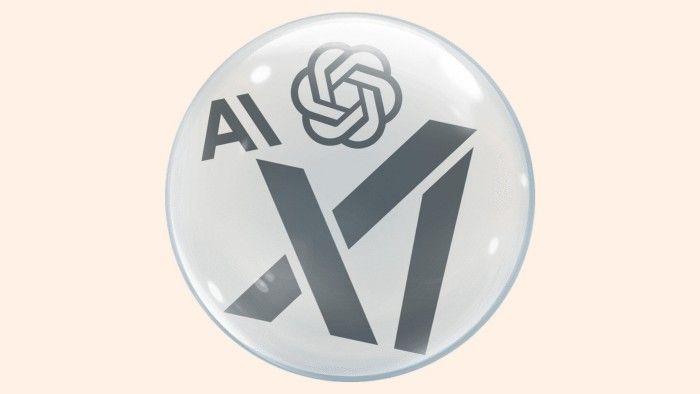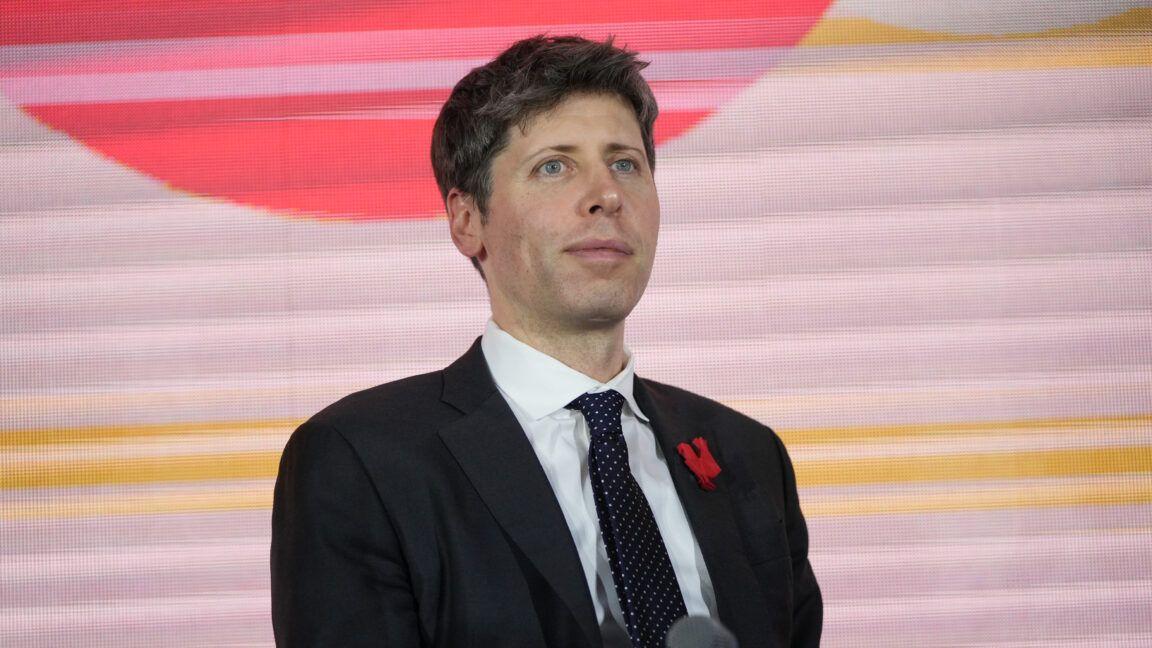Tech Leaders Warn of Potential AI Investment Bubble and Market Drawdown
3 Sources
3 Sources
[1]
Goldman's Solomon warns 'it's not different this time' as tech stocks hit new highs
Goldman Sachs chief David Solomon has warned that a lot of capital being invested in artificial intelligence will "turn out not to deliver returns" but said it was still unclear whether the tech market was in a bubble. The current AI investment boom has propelled the market value of Nvidia to a new peak of $4.6tn, as Silicon Valley giants pour hundreds of billions of dollars of investment into data centres, helping push US stocks to fresh record highs this week. That will ultimately play out like other tech investment cycles, Solomon warned on Friday, even as he remained optimistic about AI's potential. Speaking at a conference in Italy on Friday, Solomon said that when the current cycle ends, "there will be a lot of capital that was deployed that didn't deliver returns". "It's not different this time. We just don't know how that will play out," he said. Solomon told an audience at the Italian Tech Week conference in Turin that AI's ability to boost productivity was "very exciting", predicting that the "business of work will be transformed by AI globally". But the chief executive of the most prestigious US investment bank admitted he was "not smart enough to know" if investors' excitement over AI had turned into a bubble. "If you were having this conversation in 1998 you would have been asking the same question but the [market] would run for another three years," he said. "We are at the beginning of the movie not the end of the movie," he added. "I wouldn't be surprised if in the next 12-24 months we see a drawdown in equity markets but that shouldn't be surprising given the run we've had." Big Tech groups are investing ahead of a projected leap in demand from businesses for AI tools, even though many companies are yet to see the promised returns on the technology. Analysts at Citi this week raised forecasts for AI-related capital expenditures by Big Tech's "hyperscalers" to $490bn next year, rising to $684bn by 2029. Solomon said that companies were slowing hiring as they assessed how useful the technology could be, contributing to a US jobs market that was a "little bit soft". But he said that the US economy as a whole was "in pretty good shape", as fiscal stimulus and AI data centre investment provided a "pretty good tailwind" despite trade policy uncertainty. Beyond tech, the Wall Street boss also predicted that there would be an "acceleration" in dealmaking next year as US companies embraced the Trump administration's light-touch approach to regulation. Solomon said there was "real momentum in the dealmaking environment. I would say it's accelerated very significantly," he said. "I think you are going to see an acceleration of that in to 2026 for sure. CEOs are testing the boundaries of their capabilities . . . I think the regulatory environment is going to permit that."
[2]
Jeff Bezos slams AI "industrial bubble," while Goldman Sachs' CEO expects "drawdown"
Driving the news: In separate appearances at Italian Tech Week in Turin, Italy, Bezos and Solomon spelled out their concerns. * "This is a kind of industrial bubble," Bezos said, according to CNBC. * "I wouldn't be surprised if in the next 12 to 24 months, we see a drawdown with respect to equity markets," Solomon said. "I think that there will be a lot of capital that's deployed that will turn out to not deliver returns, and when that happens, people won't feel good." Zoom in: Bezos painted a picture of an investment environment in which early-stage ideas are getting funded despite little substance. * But he said an "industrial" bubble can still yield meaningfully positive outcomes in the end, after the feverishness tapers off. * "Investors have a hard time in the middle of this excitement distinguishing between the good ideas and the bad ideas," he said, according to FT. "That's also probably happening today. But it doesn't mean that anything that's happening isn't real. AI is real, it is going to change every industry." Solomon stopped short of calling it a bubble, though he made it clear that investors may be getting a little too giddy. * "I'm not going to use the word bubble, because I don't know, I don't know what the path will be, but I do know people are out on the risk curve because they're excited," Solomon said, according to CNBC. * "And when [investors are] excited, they tend to think about the good things that can go right, and they diminish the things you should be skeptical about that can go wrong ... There will be a reset, there will be a check at some point, there will be a drawdown. The extent of that will depend on how long this [bull run] goes," he added. The other side: Bullish tech investors say there's a distinct difference between this AI-fueled market and the dotcom bubble of a quarter century ago: This market is underpinned by actual hardware purchases (like Nvidia's chips) and emergent services (like OpenAI's ChatGPT) that offer a clear path to revenue.
[3]
Goldman Sachs CEO shares warning about AI's stock market 'drawdown'...
Goldman Sachs CEO David Solomon on Friday warned that an AI investment frenzy may be overdone - and that stock markets are due for a "drawdown". Major US stock indexes have notched record high after record high this year on the promise of artificial intelligence, but there's a good chance that not all of those investments will deliver big returns, Solomon said during Italian Tech Week in Turin, Italy, on Friday. He noted that the internet craze of the late 1990s and early 2000s drew a frenzy of investment in tech companies. But it was followed by a dramatic collapse in the shares of many of those firms - known as the "dot-com bubble". "You're going to see a similar phenomenon here," Solomon said. "I wouldn't be surprised if in the next 12 to 24 months, we see a drawdown with respect to equity markets." "I think that there will be a lot of capital that's deployed that will turn out to not deliver returns, and when that happens, people won't feel good." President Trump earlier this year unveiled a collaboration between top tech firms like SoftBank, OpenAI and Oracle that intends to invest $500 billion over the next four years into building new AI infrastructure across the country. AI optimism has helped push Wall Street indexes higher and higher, even after fears around Trump's tariffs tanked stocks earlier this year. That's led some leaders in the financial and tech industries to warn of a potential "bubble burst" down the line. "I'm not going to use the word bubble, because I don't know, I don't know what the path will be, but I do know people are out on the risk curve because they're excited," Solomon said. "And when [investors are] excited, they tend to think about the good things that can go right, and they diminish the things you should be skeptical about that can go wrong." Investors have poured capital into stocks like Microsoft, Alphabet, Palantir and Nvidia, as tech firms announce multi-billion dollar investments in AI. Pricey data center deals have taken center stage as companies try to build out the energy infrastructure needed to power this new tech. "There will be a reset, there will be a check at some point, there will be a drawdown. The extent of that will depend on how long this [bull run] goes," he added. "Markets run in cycles, and whenever we've historically had a significant acceleration in a new technology that creates a lot of capital formation, and therefore lots of interesting new companies around it, you generally see the market run ahead of the potential," Solomon aded. "There are going to be winners and losers." Solomon isn't the only one pointing to red flags when it comes to massive AI investments. At the same event on Friday, Amazon founder Jeff Bezos said AI is currently in an "industrial bubble." However, Solomon also expressed excitement about the future of artificial intelligence. "I sleep very well. I'm not going to bed every night worried about what will happen next," Solomon said. "Generally speaking, I think what's super exciting is the technology is expanding, new companies are being formed, and the potential of this technology deployed into the enterprise can be very, very powerful. So, it's an exciting time."
Share
Share
Copy Link
Goldman Sachs CEO David Solomon and Amazon founder Jeff Bezos express concerns about the current AI investment frenzy, drawing parallels to past tech bubbles. They warn of potential market drawdowns and emphasize the need for caution amid the excitement.
Tech Leaders Sound Alarm on AI Investment Frenzy
In recent statements at the Italian Tech Week in Turin, prominent tech and finance leaders have expressed concerns about the current artificial intelligence (AI) investment boom, drawing parallels to past tech bubbles and warning of potential market drawdowns
1
2
3
.
Source: Axios
Goldman Sachs CEO's Cautionary Outlook
David Solomon, CEO of Goldman Sachs, has warned that a significant portion of capital being invested in AI may not yield expected returns. Solomon stated, "It's not different this time. We just don't know how that will play out," emphasizing the cyclical nature of tech investments
1
. He predicted a potential drawdown in equity markets within the next 12-24 months, citing the current market run-up2
.
Source: New York Post
Jeff Bezos on the "Industrial Bubble"
Amazon founder Jeff Bezos echoed similar sentiments, describing the current AI landscape as an "industrial bubble." Bezos highlighted the difficulty investors face in distinguishing between good and bad ideas during periods of excitement. However, he remained optimistic about AI's long-term potential, stating, "AI is real, it is going to change every industry"
2
.Market Dynamics and Investment Trends
The AI investment boom has propelled companies like Nvidia to unprecedented market valuations, with Silicon Valley giants pouring hundreds of billions into data centers and AI infrastructure. Analysts at Citi have projected AI-related capital expenditures by Big Tech "hyperscalers" to reach $490 billion next year, potentially rising to $684 billion by 2029
1
.Related Stories
Contrasting Views and Future Outlook
Despite the warnings, some bullish tech investors argue that the current AI-fueled market differs from the dotcom bubble of the late 1990s. They point to tangible hardware purchases and emergent services with clear revenue potential as distinguishing factors
2
.Solomon, while cautious, also expressed excitement about AI's potential to boost productivity and transform the business landscape globally. He emphasized that the market is "at the beginning of the movie, not the end," suggesting that the full impact of AI is yet to unfold
1
3
.Policy and Economic Implications
The AI boom is occurring against a backdrop of economic and policy considerations. Solomon noted that companies are slowing hiring as they assess AI's utility, contributing to a "slightly soft" U.S. job market. However, he also highlighted that fiscal stimulus and AI data center investments are providing a "pretty good tailwind" for the U.S. economy
1
.As the AI landscape continues to evolve, industry leaders urge investors and companies to balance excitement with caution, recognizing the potential for both transformative innovations and market corrections in the coming years.
References
Summarized by
Navi
Related Stories
Recent Highlights
1
French Police Raid X Office as Grok Investigation Expands to Include Holocaust Denial Claims
Policy and Regulation

2
OpenAI launches Codex MacOS app with GPT-5.3 model to challenge Claude Code dominance
Technology

3
Anthropic releases Claude Opus 4.6 as AI model advances rattle software stocks and cybersecurity
Technology








